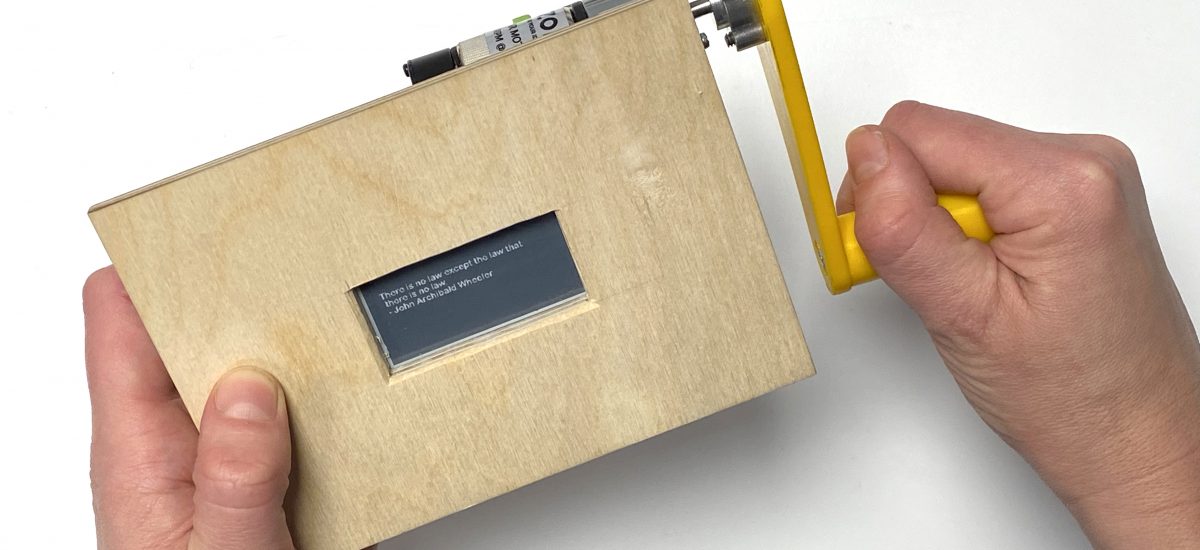HumanScatter
HumanScatter: Demonstrating Rich and Batteryless Human-Powered Interaction using Backscatter Communication

About the project
The project’s work focuses on the design and prototyping of interactive systems that are limited in energy usage to our bodily capabilities – technology driven by human power. Currently, no battery-free Bluetooth transceivers exist that can directly receive data from unmodified Bluetooth devices such as smartphones. This project will investigate this challenge in combination with human-powered interactions with the ambition to create sustainable, robust, and resilient low-power technology and communication mechanisms. The goal is to achieve rich battery-free human-powered interactions using backscatter communication. The project will result in a new Bluetooth backscatter transceiver, multiple novels and intriguing demonstrators of human-powered interaction using backscatter techniques, and a final refined fully working demonstrator suitable for long-term exhibition at the digital futures demo space.
Background
Throughout history, people have for the most part relied on their own bodily capacity, in essence leading a human-powered or self-powered lifestyle. In contrast, today’s energy abundance has led to a replacement of human power by invisible centralized electricity production, enabling people to easily use magnitudes more energy than provided by the bodily limits of the individual. Backscatter communications and associated techniques offer a promising alternative to traditional communication technologies by lowering their power consumption to the point that they can often be powered only by radio waves or other energy harvesting methods. While backscatter Bluetooth transmissions have been widely demonstrated, battery-free reception of Bluetooth packets remains a challenge.
Crossdisciplinary collaboration
The researchers in the team represent the School of Electrical Engineering and Computer Science, KTH and the Department of Computer and Connected Intelligence Unit, RISE.

